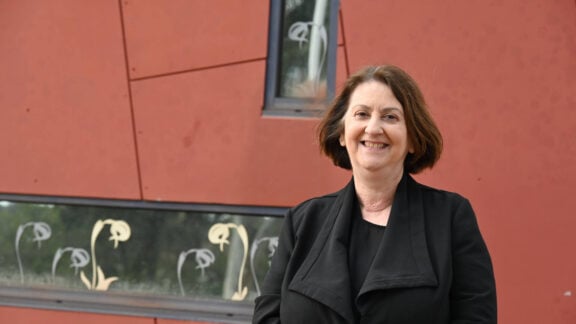In Greece’s June 2012 general election Syriza very nearly won. With 71 seats and only two percentage points behind New Democracy, the Coalition of the Radical Left United Social Front almost became the largest party in the Greek parliament.
How different might the situation be today if they had? Would austerity still be the order of the day? Would Greece be out of the euro? Would the ideology of this radical coalition have begun to deliver the country from its economic woes, or would it have deepened them?
In the nail-biting finish of that June election, more than a few people sighed a breath of relief when the final results came in. Applauded for its stand against austerity, Syriza was a risk – with its diverse membership of more than a dozen political groupings, all of whom have their roots in the far Left.
Led by the youthful Alex Tsipras, also leader of Synaspismos – the largest party in Syriza – the Leftist coalition remains the main opposition party, promoting a radical alternative vision for leading Greece out of crisis.
As Kostas Isychos, one of Tsipras’ closest advisors, hurtled along the highway from Athens to Thessaloniki to attend a meeting on the Cyprus crisis (not in the driving seat I hasten to add), he spoke with Neos Kosmos about his upcoming trip to Australia.
We began with the content of his Australian presentations, in which he says he will explain how Greece has suffered from being the hapless victim of a life-threatening experiment.
“The European crisis is part of a world crisis of capitalism,” says Isychos, a co-founder of both Synaspismos and Syriza.
“Some of its harshest consequences on peoples and countries is in Europe, which in recent years has become the epicentre of an ultra neo-liberal experiment in Greece.
“Greece was chosen to lead the way as a country where the experimentation has to do with the diminishment of the state as an integral part of the nation.”
And who’s to blame? The EU, the Troika?
“It’s also the political establishment of Greece, the mainstream two parties. They’re partners in this neo-liberal experiment,” says Isychos. “They share the same values – where capital is put above ordinary people’s interests.”
Isychos dismisses the idea that Syriza is the other side of the same ‘extreme politics’ coin, thrown up by the haemorrhaging of support for Pasok and New Democracy.
“Syriza is not an extreme Left party,” he says. “It’s a front which unites many traditions of the Left, not only the communists and the revolutionary Left as we knew them in the last century, but the new Left.”
Central to Syriza’s philosophy is a fight for social justice which they believe can be achieved through an expansion of the state; not a fashionable position given a generation of down sizing state control in people’s lives across Europe.
Syriza has vowed to increase taxes on the rich by up to 75 per cent and renationalise state assets currently being privatised, such as the rail network and national power supplier. It is of course completely opposed to the austerity measures introduced to meet the Troika’s bailout deal.
The Argentine-born Isychos – who is not an MP but heads Syriza’s foreign policy and defence department – is adamant that the medicine of austerity is killing the patient.
“We’ve been going through austerity for six years. This is the sixth year of recession. More than 23 per cent of our GDP has been lost in that time,” he says. “That doesn’t happen when a country is at war.”
The war reference he takes a stage further, saying that the Greek crisis is the result of an economic conflict that has been raging in Europe, and that Greece and Cyprus have been the first casualties.
“We’re in an economic war, not only between the north and south of Europe, and between east and west, but we have become the most advanced experiment for what they want Europe to become – a Europe with people not working, without social rights – a desert of democratic rights.”
Syriza is trying to put an end to these policies he says, “not only by rhetoric but by presenting an alternative plan of government. Democracy has to be revived and that means the participation of the people”.
On the thorny question of how Greece could stay in the eurozone under a Syriza-led government that dispensed with austerity, Isychos admits that it is one of the dilemmas the party’s adversaries try to take full advantage of.
“The euro is not only a currency, but it has become an instrument of controlling weaker economies in Europe,” he says, before articulating perhaps Syriza’s most ambitious vision.
“We’re talking about a new economic architecture – within a new Europe of democracy and equality, and diminishing the great economic distances between north and south.
“We need a currency for the people of Europe which will not be a tool of control by the dominant German economic and political establishment.”
Isychos’ argument is that an integrated Europe – through the creation of the single market and its EU member states – no longer exists, and perhaps never did.
“This is not integration,” he says, “Europe is disintegrating today. What we have to do is redirect the process of unification of the peoples of Europe – the question of the currency is just one part of this process.”
Isychos says that as a third generation member of the Greek diaspora he understands the ‘sentimental attachment’ Greeks abroad have to their homeland, but for this articulate spokesperson of the Greek new Left, sentimentality and empathy don’t cut it.
Given Greece’s dire circumstances, he says it’s time for the diaspora to cut its ties with the old parties and back a new horse.
“A sentimental attachment isn’t enough. Today we need an act of solidarity by all the Greek diaspora if we are to have a Left wing government in Greece in the near future.
“We need a chain of solidarity around the world to keep this little light, this candle, still going on.”
Isychos’ appeal to a new generation – in Greece and beyond – is that Syriza stands untainted by the hubris and mistakes of Greece’s traditional political establishment.
“We see ourselves as something new that is trying to revive the best traditions of our people,” he says, before one final admission – on the trustworthiness of politicians.
Distrusting politicians is “the healthiest thing that we should look for. People not trusting even Syriza,” says Isychos, is to be commended.
“Syriza does not look for affiliates as clients, Syriza looks for partners where we all have to be protagonists in building something new.
“We are not leaders being followed by masses. We want everybody to be a leader.”
Kostas Isychos will be giving two public talks in Sydney and Melbourne during his Australian visit. The Sydney event starts at 3.30 pm on Sunday 7 April at the Greek Bilingual Bookshop, 837 New Canterbury Road, Dulwich Hill. In Melbourne his talk will take place on Monday 8 April at 7.00 pm at the AMWU offices, 251 Queensbury Street, Carlton.
Advertisement
Syriza makes call-to-arms down under
Kostas Isychos talks to Neos Kosmos about the Greek people’s ‘healthy’ distrust of politicians and the diaspora’s role in rebuilding Greece








